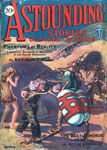
 Dune, Messiah
Dune, Messiah
By Frank Herbert, Read by Scott Brick, Katherine Kellgren, Euan Morton, and Simon Vance
9 hours – [UNABRIDGED]
Publisher: Macmillan Audio
Published: 2007
Themes: / Science Fiction / ESP / Religion / War / Charismatic Leader /
Its 12 years after the triumph of Paul Atriedes on Arrakis, as presented in Dune. But “happily ever after” wasn’t the kind of book that Frank Herbert was interested in writing. Nor was a “Dune Part II” in which Paul would be presented with another challenge, maybe greater than the first, which he would conquer – with much rejoicing. (Yayyyyy!) Instead, Frank Herbert gave us something (here it comes) completely different.
Dune, Messiah opens with a discussion between members of the Spacing Guild, the Bene Gesserit, the Bene Tleiaxu, and the Princess Irulan about how to bring about the fall of the Emperor Paul, making it immediately apparent that things are not going well for Paul. The known universe has not fared well under his rule. The religious fervor around Paul has increased over time, with people, acting in Paul’s name, performing atrocities on various planets. The Fremen way of life has been completely devastated by the changes brought about by Paul’s government. Paul’s ability to see the future has become something of a burden. He’s often acting in ways to fulfill his role rather than of his own volition. He acts to fulfill fate rather than to fight against it.
It’s not hardly the stuff of heroic literature, like Dune was. Instead, it’s decidedly anti-heroic, which is precisely what Frank Herbert was aiming for. He was writing a book in which his hero makes mistakes in order to illustrate the danger presented by a charismatic leader. From Dreamer of Dune, a biography of Frank Herbert written by his son, Brian:
Among the dangerous leaders of human history, my father sometimes mentioned General George S. Patton, because of his charismatic qualities — but more often his example was President John F. Kennedy. Around Kennedy a myth of kingship formed, and of Camelot. His followers did not question him, and would have gone with him virtually anywhere.
To Frank Herbert, this kind of thing was extremely dangerous. This is an especially interesting counter-viewpoint here in 2009, where the United States has another very charismatic leader. One can’t help but to wonder what Herbert would have to say today.
So Dune can be considered to be the rise of Paul Atreides, and Dune, Messiah could be considered the fall. There’s no question that Dune, Messiah is not the masterpiece that Dune is, but it’s still very interesting. Besides the continued exploration of science fiction ideas like the ghola (Duncan Idaho returns as a ghola in this book – a reanimated man that is Duncan Idaho, but is he really?), the overall exploration of an anti-hero is something that is rare enough in science fiction to make it an refreshing read. Children of Dune, the next book, was definitely on Herbert’s mind as he wrote this one, so it’s difficult to present any kind of final judgment until I read that one. Perhaps the fact that I’m interested enough to continue is judgment enough.
Macmillan Audio’s presentation of the book was excellent. There are multiple narrators, each reading sections of the book. All the narrators are top-notch, so I was very pleased with it.
I found some of the history of Dune, Messiah‘s publication to be interesting as well. John W. Campbell couldn’t wait to serialize Dune in Analog magazine, and did so. But when Dune, Messiah came around, he was disappointed enough in the direction of the story that he wouldn’t buy it for his magazine, despite the popularity of Dune. Galaxy Magazine ended up serializing it.
In Road to Dune, Brian Herbert and Kevin J. Anderson quote a letter from John W. Campbell about Dune, Messiah:
The reactions of science-fictioneers, however, over the last few decades have persistently and quite explicitly been that they want heroes – not anti-heroes. They want stories of strong men who exert themselves, inspire others, and make a monkeys uncle out of malign fates!
Perhaps that’s so, but I enjoyed the book very much, partly because it was different.
Posted by Scott D. Danielson







